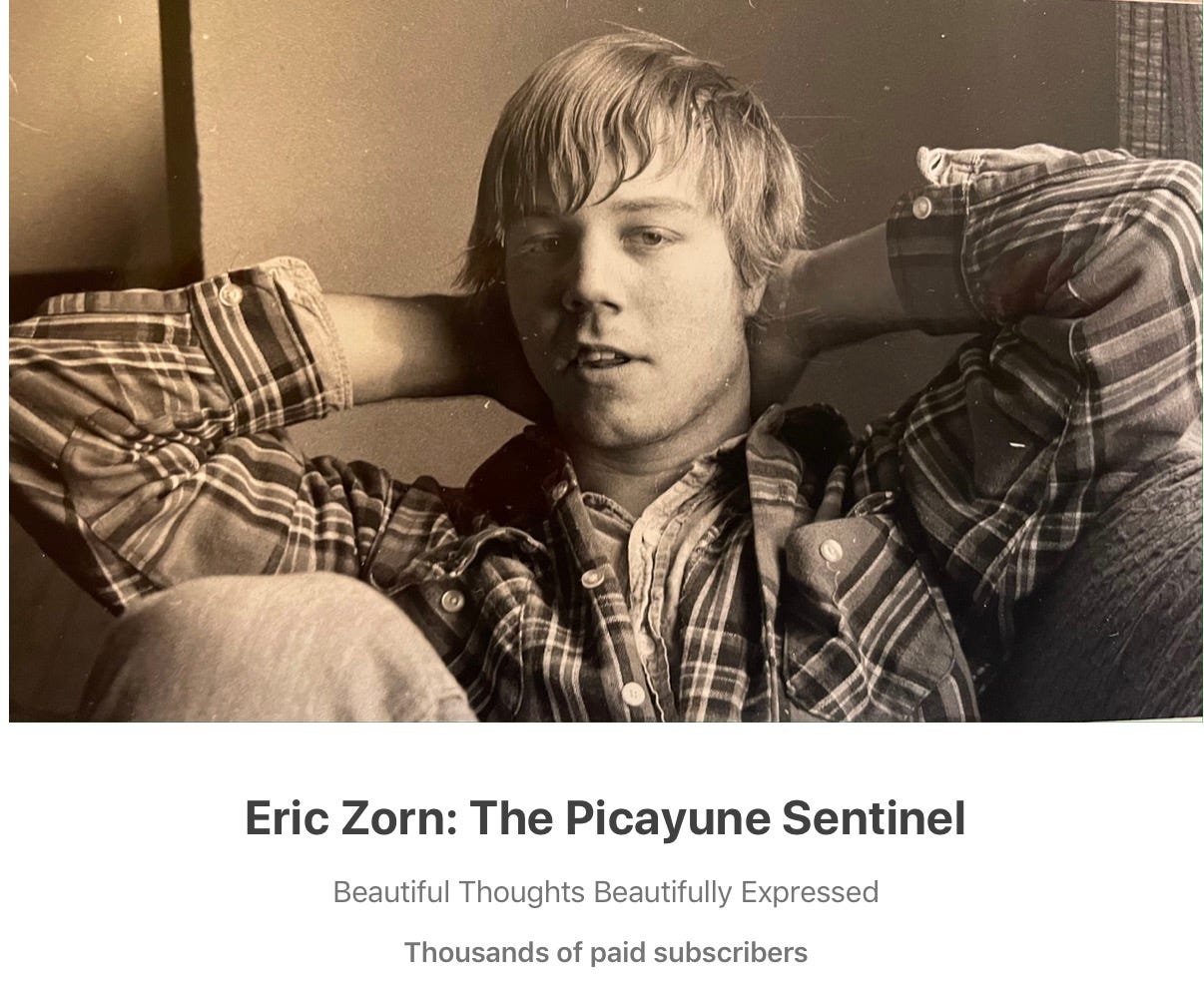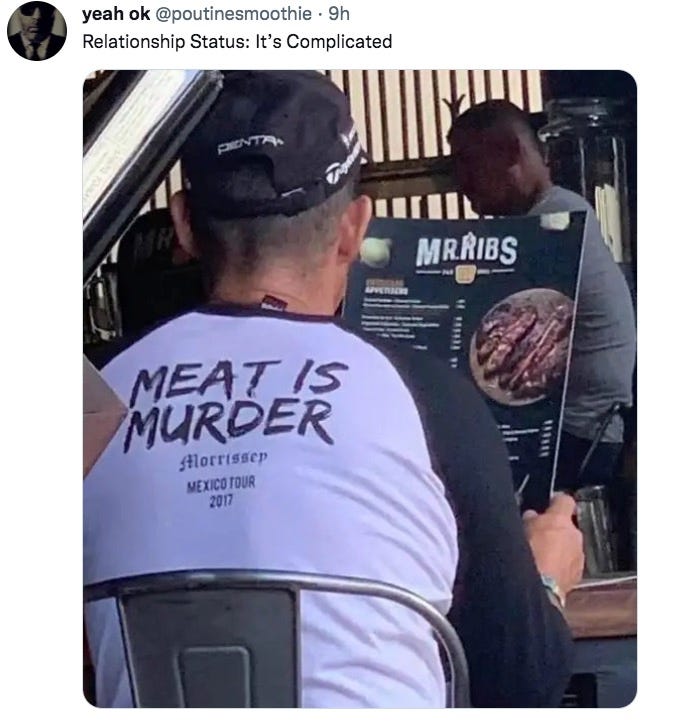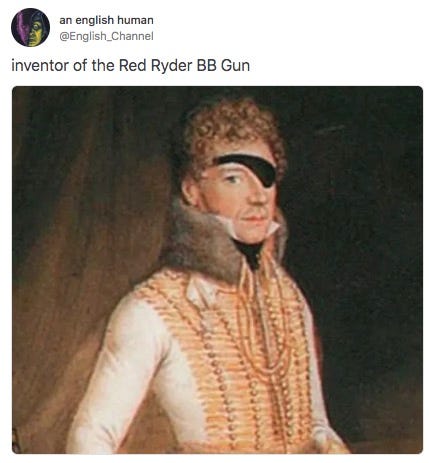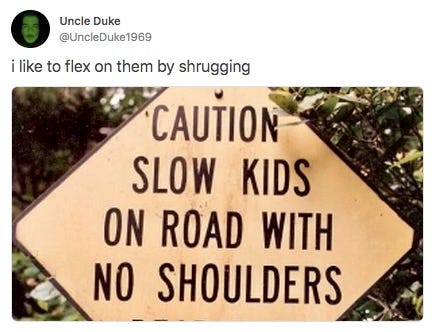Cash bail would be unthinkable if it weren't already traditional
& a last (I promise) round of letters on the Purdue Northwest controversy
Eric Zorn is a former opinion columnist for the Chicago Tribune. Find a longer bio and contact information here. This issue exceeds in size the maximum length for a standard email. To read the entire issue in your browser, click on the headline link above.
Imagine there has never been such a thing as cash bail
As the courts and the politicians are sorting out the controversy over the proposed elimination of cash bail throughout Illinois — as is often the case, Rich Miller’s Capitol Fax blog has all you need to know — I invite you to consider an alternative world where the courts have never used cash bail as a way to increase the chances that accused criminal suspects will appear in court at an appointed time.
This would be a world in which the decision whether to release indicted criminal suspects prior to trial would be based solely on a judge’s determination whether they were flight risks or were likely to pose a danger to their communities or to specific other people .
Now imagine the collective indignation that would greet a proposal to let criminal suspects with access to money walk free before trial while impoverished suspects charged with exactly the same crime had to stay locked up before trial.
Now, yes, the justice system is tilted against the poor. Wealthy people have always had access to private attorneys able to devote significant time and resources to mounting their defenses. But allowing people to buy their freedom? That would strike most people as brazen and offensive.
And yet. Long standing tradition not just here but in other parts of the world is to use cash as a surety. It’s a tradition we’re so used to that getting rid of it sends waves of shock and fear through many in the public. But it’s one that belongs in the ashbin of history.
Being poor is not a crime.
Notes and comments from readers —lightly edited —- along with my responses
Some of these messages are in reference to items in last week’s issues of the Picayune Sentinel. Scroll to the bottom of the newsletter for a set of letters on the Purdue University Northwest controversy.
Jim N. — In your predictions section you wrote that “indicting and imprisoning your vanquished political foes is a very authoritarian move and at the very least has echoes of the ridiculous ululations of ‘lock her up!’ about Hillary Clinton.” But at what point does that philosophy falter? A video of Trump shooting someone in the head? He is, in the eyes of many people, including some prosecutors, responsible for several deaths on Jan.6. Unless you absolve him of that event, it's not authoritarian to indict someone on reckless homicide or at least lesser charges in a situation like this.
I wasn’t necessarily endorsing that view, merely putting it out there as a reason why I predict the U.S. Justice Department will shrink from filing criminal indictments against Trump. Trump seems to be considered above the law and I agree with the sentiment that this is outrageous. Bob E. —I agree with your prediction that the U.S. Supreme Court will end affirmative action as we know it, but there will remain plenty of room for a better, fairer form of affirmative action after racial quotas or preferences are abolished. It will be achieved in the granting of aid based on the financial needs of the students and their families. The problem with not enough Black and Hispanic students in college and at the best colleges and universities, is not a failure of affirmative action. It is the failure of government-run K-12 education, among the other pathologies of low income, minority urban communities.
Ed F. — Finding the best visual tweet is not possible in some cases, because it implies that some of the tweets are good. If none is good, then none can be better or best. It's like asking what is the best way to catch covid. Perhaps there should be a "none of the above" option.
Not voting for any of the tweets is a way to register a none-of-the-above preference, and I acknowledge that, in general, the quality of tweets seems to have diminished slightly in the last few months. Certainly reader response to them is waning.
Steve K. — Your take on the misappropriation of “Hallelujah “ as a Christmas song reminded me of the time that Lawrence Welk decided to feature “One Toke Over the Line” on his show in 1971, performed by his singers Dick Dale and Gail Farrel. Owing to the words “sweet Jesus” in the refrain, Welk characterized the song as a “modern gospel” song. It also reminds me of songs like “Born in the USA” and “Rockin In the Free World” being used at political or patriotic events, and “Every Breath You Take” becoming a staple at wedding receptions, all suggesting that people have never really paid attention to the lyrics of any of these songs.
First, for anyone who has not yet seen this astonishing Lawrence Welk clip, you must watch:
Next, It’s hard to think of a less appropriate song for a wedding reception than “Every Breath You Take.” But here are some contenders:
“Me and Mrs. Jones”
“You’ve Lost that Lovin’ Feeling”
"Tainted Love"
“Love Stinks”
"Bad Romance"
“50 Ways to Leave Your Lover”
“D-I-V-O-R-C-E”
"Thank U, Next"
"Jolene"
"I Will Always Love You"
“I Still Haven’t Found What I’m Looking For”
Steven H. — I hope you don’t mind me making a personal comment, but you were one young hottie in your profile picture.
Why thanks! Opinions have been quite varied about the image that I used to replace the photo of my grandfather on the page where searchers land. Max Zorn’s photo made it appear that the Sentinel was written by an octogenarian, which is not quite true. This photo, from when I was 19 and in a fairly grungy stage, makes it appear that the Sentinel is written by a college kid who can’t be bothered to wash his hair.
One friend complained bitterly that she can never unsee this image. Another said she liked it but found it grossly misleading. And some have found it endearingly scruffy.
The top 5 scraps of wisdom from ‘20 Witty and Wise Pieces of Advice for 2023’ in The New York Times
“Someone I know suggested that I stop beginning conversations by asking ‘What’s new?’ and instead try ‘What did you do today?’ It was a good reminder that, even though there is a lot of change happening in my life, that isn’t the case for everyone. I have had better and more interesting conversations since.” — Emily Roberson, Moab, Utah
“The best advice I received was to photograph my parents doing everyday things because this is how I will want to remember them.” — Lori Gosselin, Seattle, Wash.
Never take criticism from someone you wouldn’t go to for advice.” — Leonard Foonimin, Falcon Heights, Minn.
“Learn to say, ‘I need time to think about this.’ You’ll save yourself a world of trouble.” — Ann Mehaffy, Baker City, Ore.
Give up all hope of changing the past.” — Steve Bunnell, Los Angeles
Ya gotta see these tweets!
I often run across tweets that rely on visual humor and so can’t be included in the Tweet of the Week contest (the template I use for that poll does not allow me to include images). Here are a few good ones I’ve come across recently:
Vote for your favorite. I’ll share the winner in Thursday’s main edition.
There’s still time to vote in the conventional Tweet of the Week poll!
Special Zmail section: The final letters (for now) on the Purdue Northwest controversy
Kenny C. — Revisiting this issue of the offensive remark by Purdue University Northwest Chancellor Thomas Keon, dude, there is no way in heaven or hell that a senior level executive of a major university did not totally understand precisely what he was saying or the ramifications thereof when he deliberately uttered his completely insensitive imitation of an Asian accent. You've been around much much too long to fall for that okey doke.
In your correspondence with Picayune Sentinel reader Steve T regarding Chancellor Keon's comments, you repeatedly attempt to slot Keon's racism in the "not intentionally offensive" category, similar to the 21st century apology du jour: "I apologize if my remarks have offended anyone".
Anyone who offers up that horse manure faux apology is doing so with a smirk the size of the sun. As Steve T. cogently points out, Keon is more than well-educated enough to know exactly what he was saying and how his remarks would be perceived.
For you to summarily dismiss his intentional offense by saying that this incident will be a learning experience for Keon renders you as guilty as the chancellor for attempting to defend the indefensible. I've never been one to play the race card and I'm not even doing so here — I'm simply classifying Keon as an insufferable intentionally insensitive cowardly bastard who attempted to cloak his ethnocentrism in alleged humor. Hell yes, he should be terminated for being a nickel-slick flimflam- con instead of a leader who holds himself to a standard of integrity.
I strongly disagree that Keon was intending to cause hurt or that his apology carried any whiff of the disreputable “I’m sorry if you were offended” no-pology. I guess you can work up enough contempt for him to fantasize that he planned to insult Asian born and Asian-American people and feels no regret over having done so, but I can’t. And I continue to maintain that this unfortunate incident will prompt positive change at the school and perhaps even more broadly as we become more aware of the sorts of hurts even dumb jokes can cause.
You would think, from some of the demands to fire Keon, that he scripted remarks playing on the ugliest stereotypes and then defended himself by saying he was just joking. There is no evidence that that is the case, however.
Ted Z. Manuel (a version of this letter was published in the Tribune) — To those who want to give Chancellor Keon a pass, one might ask "What if, instead of mocking Asian speech patterns, he had in the same way mocked any second- or third-tier European language that is unintelligible to most American ears? Pick one at random. Polish? Czech? Romanian? Would the "forgive him" crowd be equally willing to forgive him? Likely not, even though in such a case it would be white-on-white disparagement.
Consider the following which is a matter of record, and smolders in the minds and hearts of those permanently or temporarily among us, influencing reactions to his intemperate remarks:
1. The long-standing anti-Asian pattern of exclusion evident in our immigration policies.
2. Such historical besmirchment by the likes of, say, one-time Secretary of State Dean Rusk who, during the Nixon era or thereabouts, had the temerity to in public dredge up the phrase "Yellow Peril."
3. Or the San Francisco attacks by disgruntled whites on the Chinese men wearing their traditional queues, who took up residence there after their labor was no longer needed after they had been recruited as cheap labor to help build our transcontinental railroad. Their queues were cut off. They were physically beaten. No white person was arrested for it, much less charged. Equality? No, racial inequality, quite likely including made-up Chinese language mocking Mandarin, a 5,000-year-old language.
4. Or the pushback dating back 30 years or so among California whites resenting the big number of Asian students admitted to state universities based on the highest qualifying scholastic scores? Angry white parents whose kids scored lower wanted to discard the rules (highest-scorers enrolled first) to favor their white sons & daughters. It got ugly, even though the test scores were obvious qualifying evidence.
5. Or the insistence by the Dulles brothers, one running the CIA, the other Secretary of State. to define the conflict in Vietnam as Communism taking over Democracy, soon to trigger a Lenin-style imposition on that nation, bringing on the Vietnam War, when all the Vietnamese wanted was self-determination (after French colonization; remember Dien Bien Phu?). Instead, seen through Commie-panicked American lenses, it was instead seen as a threat of Communism taking over all of Southeast Asia. The folly of America's view and the war that followed was finally admitted by the Secretary of Defense, Robert McNamara, in his dotage. Guilt after prosecuting an unjustified war? Agent Orange and everything, still poisoning the environment there?
6. Or lingering resentments among the Chinese over such capers as The Boxer Rebellion, confiscation of whatever the Brits fancied while China was one of their colonies, including the Opium War and other indignities suffered and remembered. (Hard to say to what extent these offenses still burn in the psyches of today's political leaders in China, influencing their moves on the international chess board. But it is hard to expect that all has been forgiven or forgotten. And China aside, resentments likely still abide elsewhere. The My Lai Massacre, Agent Orange (never used against other enemy nationalities), etc. Easy for most Americans not to remember such things, which are indelibly remembered by Asians, and can figure into their reaction to remarks such as Keon's.)
7. Or the current 100% increase in random attacks on Chinese in American cities, by haters, as has been in the press for months. Almost all were/are US citizens, with equal rights, and expectations of equal treatment.
All these historical currents are alive and well among members of America's Chinese community, even though seldom voiced.
The Japanese-American community has similar resentments in its heart over their treatment following Pearl Harbor, when they were uprooted for the duration, their businesses and homes confiscated, within living memory. Just because the resentments are not vocalized does not mean they are forgiven. And the paltry $15,000 or so in embarrassment money paid to the survivors of that treatment by our Congress during the Reagan years was a pathetic confession of white guilt. Note: Our other WWII enemies were Germany and Italy. Yet no one of German or Italian ancestry was herded into holding camps, their assets confiscated, as was done to the Japanese among us. Does anyone believe none of this is remembered and passed down by word of mouth from parent to child ever since by parents not too embarrassed by the telling to speak it aloud?
Not to mention Asian patrons in public places being put upon and assaulted by self-appointed white racial purists telling them to "go home" even when they are native-born US citizens.
Enter Thomas Keon, a presumably educated man speaking on behalf of a prominent educational establishment, being so socially inept as to spout a made-up Asian language as a weapon of mockery, immediately seeming to distance Purdue Northwest (if not the entire Purdue institution) from its Asian student body and from Asians in general as well, "othering" them by belittling their language(s). It was automatically a job-ender, as assuredly as if he had instead used a "sho-'nuff" Stepin' Fetchit southern black manner of speech typical of 1930's Hollywood or in a blackface vaudeville skit.
It was offensive and racist. His bad judgment has earned him both censure and termination from Purdue. Anything less would be coddling a racist who in his heart sees Asian people as less than whites, or as a lesser subset of Americans at best. Cutting him slack sends the message that anyone else of racist bent can count on a pass if and when they pull the same sort of dumb public stunt.
Years ago, a Republican Senate Leader was summarily sent into the wilderness for offering alibis for the transparently racist comments made by another Southern Republican. Can't recall his name at the moment. It was what bad karma demands. Once revealed as a racist (in Keon's case racism against Asians), always a racist. Old saying: "Leopards don't change their spots." Same with racists, secret or discovered.
Just to keep Keon on payroll is to implicate Purdue in racist sentiment. Is that what they want? That's what it shall cost Purdue's reputation if they keep him. Their best bet: Incise the cancerous part of the body to maintain the integrity and prosperity of the body itself. Cut him slack, cut their own throats. Giving him a break should not even be the substance of what to do next. He should already be looking for other employment. A principle is at stake. How this ends will define or redefine Purdue.* All this in the shadow of recent socially advanced revelations and conclusions concerning many leading educational institutions found to have commited anti-egalitarian behaviors, including how they managed their business dealings in synch with the slave trade while it existed.
I contend that if Keon had imitated any European accent when making his gibberish “made up language” attempt at humor, that no one would have taken offense. Is anyone up in arms that Paul Giamatti, an actor of Italian descent, is imitating a German accent in those Verizon commercials where he plays an Einstein-like figure? Of course not.
And much of the rest of your letter spells out very well the social, cultural context that makes it less acceptable to make jokes about AAPI people than about, say, French people.
You describe his use of the accent as a mockery that belittles the native language of Asian people and “others” them, but even aside from the question of whether that was his intent — I don’t think it was — surely you can’t think that’s the case every time someone puts on a different accent. While you make the case for the understandably heightened sensitivities of AAPI community I don’t think it’s fair to impute the worst of motives to Chancellor Keon.
And, for the last time, I’m not excusing his tasteless, obtuse joke or suggesting that those who were offended had no right to be. He was out of line. The question is whether he should have paid for his mistake with his job, and I continue to give the same answer that the Purdue trustees have so far given — no.
I promised Steve T., the dissenter in last week’s Picayune Plus, the final word in this conversation, and so he shall have it:
While your readers might want to move on, I feel the need to rebut a few of your comments, clarify a couple of things that I stated a bit clumsily, and perhaps find some common ground:
1. Please understand that I would not hold everyone in everyday academia to the same standard as I hold a chancellor on the podium at graduation. I come from a family of teachers and know that profession’s travails all too well. Chancellor Keon receives more than $300,000 as the leader of a public university, far more than professors and lecturers who may face daily scrutiny over sensitive language and cultural issues. He chose to take that paycheck and bear that responsibility. I think the school community should measure him by higher standards than those for teachers who must challenge and provoke students to think in different ways in the classroom every day for far less monetary reward.
2. You say that Keon’s reputation will be destroyed and his career “in shambles” if he is dismissed. I disagree. If he wants another administrative gig at a university, he’ll get it. The system works for him (and for those of us with fair skin and solid resumes). I’ve seen that experienced white administrators, often regardless of real achievement, rarely need to sweat their next gig. Embarrassed and shamed? Sure. Ruined? Nah. If they had to spend one day on the receiving end of racist mockery and systemic oppression, I suspect they’d much prefer the momentary embarrassment and inconvenience of tapping back into their job/college/grad program/social network to find another 6-figure position. If not, they are free to spend the rest of their days in relative comfort, security, and the support of those who see them as victims. I’m far more concerned that our learning institutions show that they will uphold in word and deed every young person’s right to be seen as fully human. This isn’t about stopping any future behavior by Keon—it’s about Purdue Northwest, which will need to support its students long after Keon and the cheap-seat commenters are long gone.
3. Back to the basketball analogy—I did consider the “flagrant” foul rules (and “targeting” offenses in football). Keon should have been whistled (flagged) for both. Even children know not to use those sounds to depict someone of Asian heritage. A university chancellor doing such a thing in public is flagrant—openly mocking—and intentional—he said he was trying to sound generically Asian. Anyway, it probably wasn’t the greatest analogy given the particulars.
4. You are correct that Keon, in his apology, “directs” some measures to raise awareness, and perhaps I was unrealistic in suggesting that he offer his resignation if his actions didn’t satisfy his critics. However, given Keon’s non-existent track record of dealing with Asian-American concerns, I hold that he should announce and take a much more active stance in squaring up to their demands, naming an Asian-American leader at the university who may partner with him.
5. I stand firm on my position re McWhorter in this case. Those who want to paint Asian-American issues with the same brush as those of African Americans (or Indigenous people, LGBTQ, etc) should take a much closer look at the particulars of those issues. In my experience, McWhorter’s opinions have surfaced as a balm to those in positions of privilege, leading to my eventual distrust. As for your argument that African-American writers’ opinions should not be dismissed on lack of standing, I’d point to your former colleague Clarence Page (another journo hero of mine), who has always offered far better writing on racial cancel culture issues through the years:
I completely agree with his (and your) belief that compassion and forgiveness must be offered to all; however, the differences between Page’s example and Keon are profound, thus my divergence in the Purdue case.
6. Full disclosure: I believe that the benefit of the doubt has almost always gone to those of power and privilege; I have no compelling reason to oppose the voices of those who want to see that authority held accountable and focused on acting for the good of all. Despite my disapproval of Keon’s offense and subsequent apology, I won’t take personal offense if he keeps his job; in fact, I will root for him to show that he can spearhead the university’s becoming a more inclusive place for Asian students, thus strengthening our educational system as the engine capable of ensuring a completely fair and progressive society for all of our children.
Finally, I agree that we are unlikely to find complete common ground here, even though we are of a similar mind politically. And I certainly do not mean to suggest that you condone racist remarks or jokes as a rule.
Perhaps our personal experiences with this particular form of societal shaming and punishment are different. Regardless, can we not agree that efforts to overcome decades of prejudice and cruelty, whether malicious or casual, should outweigh our efforts to protect the powerful from personal shame? That the existential concerns of the targeted millions are vastly more important than a college administrator having to face an employment “ordeal”?
Surely you’d agree that speaking truth to power is especially critical now with the GOP ready and willing to weaponize our worst thoughts about those who don’t resemble us and our Western European US Constitution framers. Chancellor Keon will be fine. In whatever years we have left, we should choose to speak up for (and possibly err on the side of) those who have been the butts of our “jokes” for far too long.
Thank you for supporting the Picayune Sentinel. To help this publication grow, please consider spreading the word to friends, family, associates, neighbors and agreeable strangers.
.


















My, the dissenters in the Purdue Northwest controversy certainly like to ramble. They seem to labor under the belief that high word counts and numbering of one’s phantasmagoria of hallucinatory points are tantamount to making a substantive argument. Since there is far too much absurdity to respond to, I will only note that:
1. The kind of warped thinking that is on prominent display in all of the dissenters’ comments is thoroughly unpacked and dissected by Greg Lukianoff and Jonathan Haidt in their 2018 book “The Coddling of the American Mind”. Please read this excellent book if you want to comprehend where this distorted and pathological mindset comes from. It’s kind of depressing, but sheds a lot of light.
2. Maybe I missed it, but it seems, as usual, that it is mostly whites (and whites that skew along the younger side of the age spectrum) that are making all the noise here and are calling for Keon’s head. As Bill Maher pointed out a while ago when Dr. Seuss’s estate pulled “And to Think That I Saw It on Mulberry Street” from publication because of a couple of depictions in it, paraphrasing: “You know who doesn’t give a shit that Dr Seuss put out out a book in 1938 that had a racist caricature of a Chinese person in it? The Chinese”.
3. Toward the end of his screed, Steve T assured us that, despite his objections, he will not personally be offended if Chancellor Keon is allowed to keep his job. Whew! Now I can sleep at night!
Eriz…you have some long-winded correspondents who love to spew words to make the same point over and over.